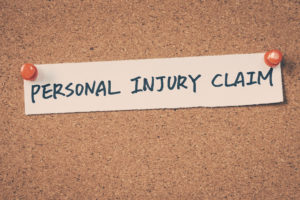 Local, county, and state governments own many properties, ranging from office buildings and schools to parks and sidewalks. Just like private businesses and homeowners, the authorities have the duty to maintain their property and make them safe for the public.
Local, county, and state governments own many properties, ranging from office buildings and schools to parks and sidewalks. Just like private businesses and homeowners, the authorities have the duty to maintain their property and make them safe for the public.
If you are injured on a public property, you can seek compensation to your damages by filing a claim against the government. However, the legal procedures for premises liability claims are different from making a claim for an injury occurring on a private property.
Governmental Premises Liability in Illinois
Government entities are responsible for making property under their dominion safe for private visitors, as well as contractors that are hired to make improvements and repairs. When a government agency fails to control or fix dangerous conditions on a property it owns, it is considered as negligence on part of that entity.
Previously, the government enjoyed sovereign immunity against such cases that rendered victims unable to seek compensation for injuries sustained on its property or inflicted by its employees. However, the Federal Tort Claims Act (FTCA) has eased this immunity, and has given people the right to bring injury claims against government agencies and their employees. However, there are several limitations to the FTCA. For instance, plaintiffs must present their claim in writing to the responsible parties, and the cases also have a reduced statute of limitations, which is 2 years.
When a hazardous condition results in injuries to a visitor, the government is liable to compensate for the damages sustained by the injured person. Damages for government tort claims may include lost wages, medical bills, pain and suffering, and out-of-pocket expenses.
Proving Negligence in Premises Liability Claims
In premises liability cases against private property owners, the plaintiff can receive full compensation for their injuries. However, in cases involving government entities, there are limitations to the settlement amounts. Statutory guidelines exclude punitive damages in governmental premises liability cases, which can reduce the amount of compensation you may otherwise receive from a private injury claim.
To establish negligence, you must prove that:
A premises liability claim may include accidents occurring on or by municipal, federal, or state property, such as:

Premises liability cases against government entities entail a lot of complexities and special rules. You should consider working with an experienced personal injury attorney who can help you understand your rights and navigate through the legal system. Contact the Law Offices of Robert T. Edens, P.C. at (847) 395-2200 or online today to schedule your initial consultation.